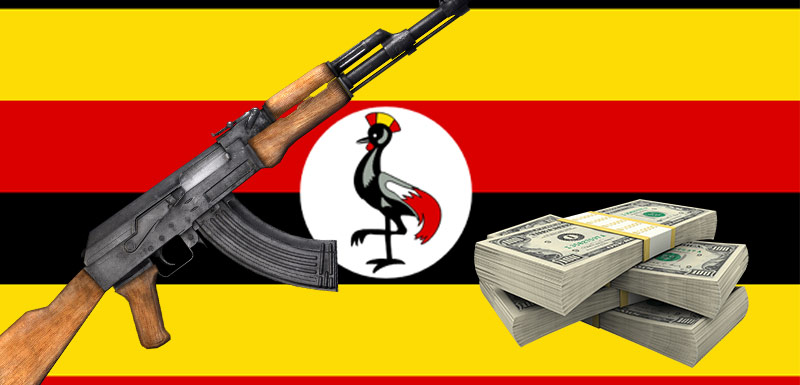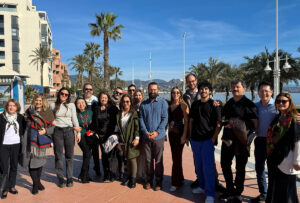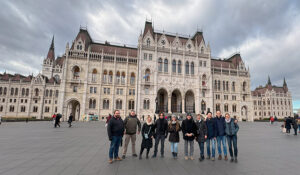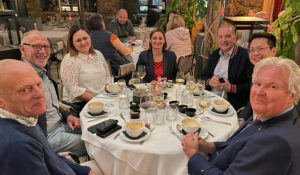“Nationalism is still a less powerful force in Uganda than tribal loyalties.”
Sir Andrew Cohen, 1957
Much has been written about the effects of money and ethnicity in Africa’s politics. In this opinion article, much as I quote some sources on the categories in question, most of the ideas are mine and based largely on my experience as an independent observer and as participant in most political activities in Uganda. I strongly say that commercial and ethnic prescriptions, a basis for political legitimacy, are not only features in the Uganda’s politics, but thorns in most of Africa’s political landscapes. Elischer (2013) observes that political parties in Africa are largely organized along ethnic lines, while Crawford (2002) considers ethnicity a key element in Africa’s politics. The article tends to show that the two categories are not uniformly applied. As this article examines in passing the role of ethnicity on politics in some African countries, more focus will be on how the two categories have played out in Uganda’s politics.
Ethnicity is bandied up in form of social categorization (Crisp & Hewstone, 2007). Not every categorization is bad. The bad side is when political legitimacy is determined on the basis of social categorization. That tends to show that the natural existence of such categorization is a danger to democracy. In actual sense, the danger is the colonial ideological construct that emanated from it, and the political elite who do not see that the application of western democracy in Africa as is exercised in the west negatively reflect social categorization of the society, since there are no distinct social and economic differentiations in a modern sense along which western democracy thrives.
In Rwanda and Burundi, political activity is viewed along the majority Hutu versus the minority Tutsi. Being majority Hutu does not mean political legitimacy over the minority Tutsi. The Hutu and Tutsi are not political parties. They are simply an embodiment of the people’s cultures, values and traditions (Deng, 1997). The question simply to ask is how can these historically determined social categorizations be juxtaposed with Western democratic patterns? The colonial mistakes were simply ignored by the so-called African elite, who not only lacked expedience and experience but also lacked the knowledge to discern the dangers that would follow if politics were run along ethnic prescriptions. The so called intellectuals have become victims of an erroneous intellectual thought, through the print and electronic media characterizing societies along ethnic lines –the majority Hutu versus the minority Tutsi, the majority Ganda versus other ethnic groups. Since these categorizations do exist in a political environment shaped by western democracy, one can easily see how they continue to shape politics in most African countries. Since they have been manipulated, they are held culpable for all the political violence and genocide in countries like Kenya and Rwanda, respectively, which took the world by surprise.
In the case of Uganda, where the author of this article has lived, the two categories can be contextualized in Uganda’s politics. Jorgensen (1981, p.227) observed that the ideology of tribalism was more than a threat to the unity of Uganda. Drawing from the illustrations above, the Ugandan elite are not different from those in the countries above. The only difference is that in Uganda there was no distinct dominant ethnic group that would take political power along ethnic lines. Even the biggest Baganda nationality with a population of about 15% of Uganda’s population cannot take power without forging some political alliances with the other ethnic groups.
Interestingly, even where one would think such strong lines of categorization in Uganda are not a political utility, the truth is they do exist. The existing erroneous intellectual thought continues to distort the image of politics. Museveni’s government and military have not survived the negative categorizations.
The initial efforts by some political leaders like Milton Obote and Ignatius Musazi, who through political alliances and rhetoric, attempted to lift their parties above ethnicity did not yield much results. Failure a positive ideology saw those coming after them retracing the ethnic faults to their advantage. In the recent years, the political landscape has become more defined by a relationship built on an ethnic and commercial platform. Both the electorate and the elite pursue mutual undertakings –political support in exchange for financial gains. This makes both the electorate and the elite culprits and perpetuators of political corruption.
Taken to another level, when a candidate wins an election, the entire ethnic group from where he comes celebrates the victory of their son or daughter. The euphoria behind all this is the financial gain and social influence in prospect. The bigger representation a particular ethnic group or religion enjoys in government agencies and departments, the better for that ethnic group, for that means big influence and resources.
Interestingly, the corrupt also enter political partnerships to protect their shoddy deals. Most politicians, who have gained political power along those lines, tend to focus more on “their people” rather than focusing on the bigger picture. Normally, the business limitations and rules of engagement tend to limit their freedom of action in terms of deliberations and decision-making. They cannot independently articulate and pursue policies perceived to contradict the local interests of the business clientele.
The young generation is getting entrapped as well. Many are attracted by the lifestyles of their leaders; hence wanting to live like them though without working. Most of the informal urban economic groups –market vendors, motorcycle riders, tax operators and the unemployed are becoming an important political lever that cannot be ignored.
In conclusion, ethnic and commercial elements in Africa’s politics generally and Uganda’s in particular are still dominant features. They continue to define and shape the country’s political landscape. As long as the intellectual thought process does not change, and ethnic prescriptions remain tools for political legitimacy, the principle of democracy and good governance as articulated in the western circles will never be realized. The young generation needs to understand that their fortunes do not lie in political handouts, and that negative ethnic prescriptions do not build nations.
BIBLIOGRAPHY
Jorgensen, Jan, Jelmet, (1981). Uganda; a modern history. London: Croom Helm.
Crisp, R. J., & Hewstone, M. (Eds.). (2007). Multiple social categorization. San Diego, CA Elsevier Academic Press.
Elischer Sebastian, (2013). Political parties in Africa: ethnicity and party formation. Cambridge University Press.
Deng, Francis, M., (1997). “Ethnicity: an African predicament.” Sunday, June 1.
Crawford Young, (2002). Ethnicity and politics in Africa. African Studies Center. Boston: University Press.
Colonel Charles Kisembo is currently doing his Doctor of Arts in Military History at Warnborough College Ireland.
All views expressed are those of the author’s and do not necessarily reflect the official policy or position of Warnborough College Ireland.





